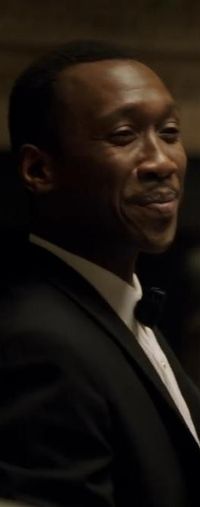
 |
 |
|
Green Book USA 2018. dir. Peter Farrely. 130 mins. Available on Digital February 19 and on 4K Ultra HD, "Blu-Ray" and DVD March 12 Distributor: Universal Pictures Home Entertainment Reviewer Ed Farolan This is a touching story based on the lives of Tony "Lip" Vallelonga (Viggo Mortensen), a working-class Italian-American bouncer from the Bronx who becomes the driver of an African Jamaican-American classical pianist Don Shirley (Mahershala Ali) on a tour of venues to the deep south during those restless years of racism in the early years of the 1960s. Obviously, they encounter racial problems during this tour. In 1962. They had very little in common but that road trip through the South led to these two becoming friends. The movie Green Book, which was co-written by Lip's son, Nick Vallelonga, is about this life-changing journey. The movie draws on recordings of Lip, as well as conversations Nick had with his father and Shirley. However, the filmmakers did not consult with members of Shirley's family; his brother, Maurice, in a radio show, said he won't see the film as he feels it's "full of lies." With this controversy and the fact that many movies make narrative choices that can leave facts behind, it may be hard to know what to believe about their relationship. To better understand it, here are some insights into the true story behind this friendship. Shirley needed Lip's security while performing in the deep South. In 1962, Shirley and Lip really did travel together so Shirley could perform south of the Mason-Dixon line. At the time, Lip's presence was a necessity. Six years earlier, Nat King Cole had been brutally assaulted on stage in Alabama. An experienced bouncer like Lip offered some security to a black man in the South. The Negro Motorist Green Book, created by postal employee Victor Hugo Green, was another real-life necessity for black travelers at the time. However, Lip and Shirley would have required its guidance long before reaching the southern stops on Shirley's tour because there were numerous "sundown" towns that forbade black people from staying overnight. The film also compresses how long Shirley and Lip were on the road together. Instead of traveling for two months, the different legs of their trip added up to more than a year, giving their friendship additional time to develop. In the movie, Lip has Shirley listen to black musicians like Aretha Franklin and Chubby Checker. But Shirley didn't really need help connecting to black performers because he was friends with Duke Ellington and admired by Sarah Vaughan. At first, Shirley disliked being called an entertainer or a jazz musician. He was a musical genius and a prodigy. He was the piano at two, playing the church organ at three (his father was an Episcopal priest) and studying musical theory at nine at the Leningrad Conservatory of Music. . In 1945,at 18, Shirley made his concert debut with the Boston Pops. After being told white audiences wouldn't accept a black pianist, Shirley had shifted his career focus toward popular music. But his musical interests remained wide-ranging, covering everything from classical and spiritual to musical theater. And he always considered how music related to his background. As he told The New York Times in 1982, "The black experience through music, with a sense of dignity, that’s all I have ever tried to do". For millenials, this is a lesson on how it was more than half a century ago. Fantastic acting by these two excellent actors. The film won three Golden Globe Awards including Best Picture. It just won three Oscars for Best Original Screenplay, Actor in a Supporting Role (Mahershala Ali), and Best Picture. © 2019 Ed Farolan
|
||||||||||||||||||||||||||||||||||
|
|
||||||||||||||||||||||||||||||||||||
|
|
||||||||||||||||||||||||||||||||||||
|
|
||||||||||||||||||||||||||||||||||||